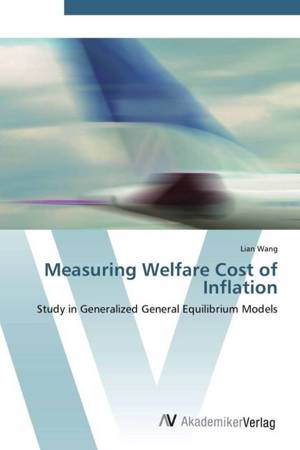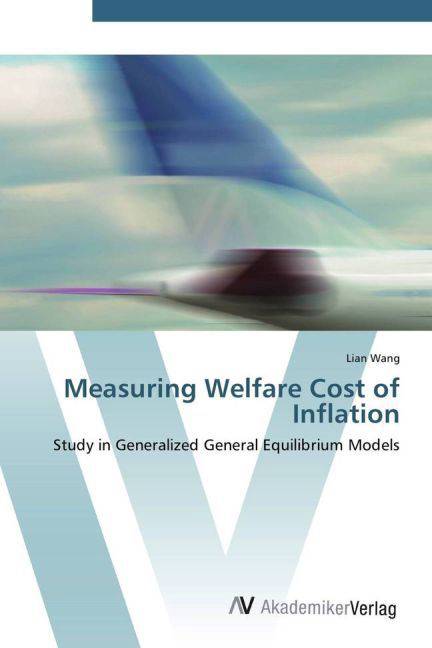
- Afhalen na 1 uur in een winkel met voorraad
- Gratis thuislevering in België vanaf € 30
- Ruim aanbod met 7 miljoen producten
- Afhalen na 1 uur in een winkel met voorraad
- Gratis thuislevering in België vanaf € 30
- Ruim aanbod met 7 miljoen producten
Zoeken
Measuring Welfare Cost of Inflation
Study in Generalized General Equilibrium Models
Lian Wang
Paperback | Engels
€ 86,22
+ 172 punten
Omschrijving
Revision with unchanged content. Why should central banks fight against inflation? To answer this question, understanding the magnitude of welfare cost of inflation is important and becomes an active research field. Economists always make some assumptions to simplify the model from reality so that the model is tractable. But at the same time, these simplifications may affect the clear view on the source of inflation cost and affect the way to measure the cost of inflation. This book analyzes the welfare cost of inflation in a general equilibrium framework that takes into account more realistic factors in the real world, a framework with more generalized model settings of money demand side and money supply side. On the money demand side, interest-bearing deposits are introduced by applying the monetary aggregation theory; on the supply side, a banking sector is established to produce interest-bearing deposits. The research should be useful for central bankers and researchers who are conducting research on the policy of central banks, and should benefit economist, econometricians, and anyone else who are interested in general equilibrium model or nonlinear threshold estimation.
Specificaties
Betrokkenen
- Auteur(s):
- Uitgeverij:
Inhoud
- Aantal bladzijden:
- 232
- Taal:
- Engels
Eigenschappen
- Productcode (EAN):
- 9783639432084
- Verschijningsdatum:
- 26/06/2012
- Uitvoering:
- Paperback
- Formaat:
- Trade paperback (VS)
- Afmetingen:
- 152 mm x 229 mm
- Gewicht:
- 344 g

Alleen bij Standaard Boekhandel
+ 172 punten op je klantenkaart van Standaard Boekhandel
Beoordelingen
We publiceren alleen reviews die voldoen aan de voorwaarden voor reviews. Bekijk onze voorwaarden voor reviews.







